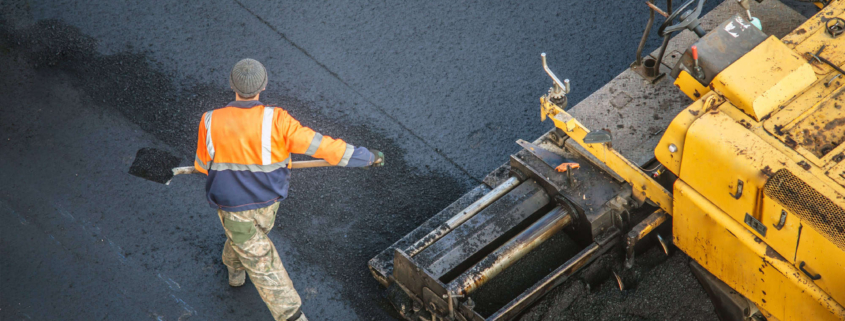Is Asphalt Eco-Friendly? Recycled Asphalt and More
Asphalt has long paved the way to modern infrastructure, creating durable surfaces for countless miles of roads, driveways, and parking lots. However, the environmental footprint of traditional asphalt production and usage has come under scrutiny. With an eye on sustainability, recycled asphalt emerges as a champion in the construction industry, offering a union of resilience and sustainability.
This article explores the intricacies of asphalt, its pivotal role in construction, and the dialogue surrounding its environmental impacts.
The Sustainability of Asphalt
When considering the environmental influence of paving materials, it’s essential to compare the production of concrete and asphalt. While both materials play a vital role in modern infrastructure, asphalt surfaces ahead in the sustainability stakes due to its recyclability and lower carbon footprint.
Concrete Vs Asphalt: Environmental Factors
Manufacturing concrete typically involves the emission of considerable amounts of CO2, a greenhouse gas contributing to climate change. In comparison, asphalt production emits less CO2, and the material’s ability to be recycled further minimizes its environmental impact. The production of asphalt can be integrated with energy-efficient technologies, reducing its carbon emissions even further.
Asphalt Resurfacing
Asphalt resurfacing is emerging as a highly sustainable practice, often recognized for its environmental friendliness. The process involves the application of a new layer of asphalt over the existing pavement, which conserves materials and avoids the need for a complete overhaul. When the top layer is comprised of recycled asphalt, the eco-friendly quotient of this approach is heightened, making it a steward of ecological conservation.
Helping with Potential Environmental Issues
The prowess of asphalt paving extends beyond road quality to proactively tackling environmental challenges. Asphalt has unique properties that aid in water management, reducing runoff and improving quality. Moreover, its dark color can help melt snow faster, decreasing the reliance on salt and chemicals during winter and thereby limiting environmental contamination. With these attributes, asphalt paving not only promotes sustainability but also champions a healthier planet.
Is Asphalt Bad for The Environment?
As we turn our focus to the sustainability of construction materials, asphalt recycling stands out for its positive effects on our planet. Asphalt forms a significant part of our infrastructure, and its recycling can influence environmental change. Here’s how the adoption of recycled asphalt contributes to a greener future.
Reduction in Greenhouse Gas Emissions
The use of recycled asphalt significantly lowers the release of greenhouse gases. This is due to a decrease in the processing and manufacturing temperatures needed when compared to new asphalt production. Projects utilizing recycled asphalt pave the way for cleaner air and a reduction in carbon footprint.
Conservation of Natural Resources and Raw Materials
Recycling doesn’t just benefit the produced material; it also preserves the raw, often non-renewable resources. By repurposing existing asphalt, the demand on quarries for fresh aggregates is reduced, thereby saving natural resources and promoting more efficient use of materials already in circulation.
Minimizing the Environmental Impact of Construction Projects
It’s well-known that construction projects can have a substantial ecological footprint. Through asphalt recycling, the industry can mitigate these effects by minimizing waste, reducing the use of virgin materials, and decreasing reliance on landfill spaces. Embracing recycled asphalt helps ensure that future construction projects lean towards environmental responsibility and sustainability.
With recycled pavement, your business or residence could save a considerable amount of money. Did you know that patched or milled asphalt is one way to continue your savings and repair your paved surfaces?
Find Out More




